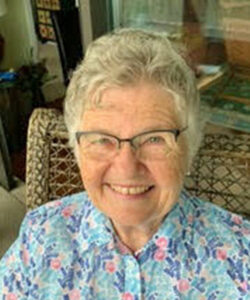Progressive Voice is a biweekly opinion column. The views expressed are solely the author’s.
By Kathie Panfil, with the Abuelitas
“I feel like you really are my Grandma.”
The child who shared that thought with a retired Arlington teacher is an English Learner (EL). Her tutor is an “Abuelita” (grandmother) with both wisdom and special skills.
When schools went online, former Arlington teachers of English as a Second Language knew how hard distance learning would be. Acquiring skills and vocabulary from English-speaking peers couldn’t happen. Relationships would have to be developed remotely. Parents would have to figure out the technology, and support their children’s learning, while fearing job loss and illness.
While we knew our community would face overwhelming challenges during the pandemic, we did know one we could tackle in Spring 2020 — we knew how to teach. Identifying the children who would most benefit from our one-on-one tutoring was done through our networks. Old friends still teaching in our schools told parents about the Abuelitas, and soon we had waiting lists. The Abuelitas also needed a communication platform, so we learned to use WhatsApp, which most parents preferred, letting the children both see and hear us on their parents’/caretakers’ phones. Abuelitas had translators within our ranks when needed.
Abuelitas know oral language is critical for English learners, and that it develops both on the playground and in the classroom. So the Abuelitas ask questions, such as “Is there anything you want to talk about?” Some days the children tell about the lessons they are learning online from their “real” teachers, practicing new vocabulary. Sometimes, the Abuelita and the child talk about feelings. One child beginning hybrid classes said, “What if my friends don’t remember who I am?” His Abuelita reassured him, and phoned later to hear about his wonderful day. The personal connection is a gift to both the student and the Abuelita.
How do we know what to teach? “The scope of what the children must learn is huge,” one Abuelita explains. Sometimes we hear from the child’s teachers, but mostly, we use hands-on activities, and we follow the interests of the child. Sometimes we work on reading and writing, but often we read to the children, fiction and non-fiction, because they need listening skills. “Don’t stop,” the children say. Some of us have developed and published materials: on gratitude, on the coronavirus and more.
We’ve taken advantage of free resources in Arlington: we thank Arlington Library for its Take and Make Crafts which we sometimes send to our children. We got Mars Base Camp kits from Virginia Cooperative Extension Service, and some gooey slime kits from Arlington Parks and Recreation. The whole family often gets involved in craft projects.
We became strong advocates for internet access, because despite efforts within the schools and the community, some families lack sufficient connectivity. We joined broadband advocacy efforts. We know connectivity is as essential as water and electric services. We like ArlFiber.org.
In fall 2020, when schools continued virtually, we heard about pods forming in some Arlington homes. Our students lacked the space, strong internet and English-speaking supervision needed for a pod. We continued one-on-one tutoring but we also wanted to form pods for students who lived in Gilliam Place, affordable housing apartments.
We looked for a location nearby and Arlington Presbyterian Church became a caring sponsor. A skilled parent volunteered to run our first pod in fall 2020, and a second pod was added in January 2021. Two nonprofits, Edu-Futuro and Our Stompin Ground, became strong collaborators. These pods worked well, with Covid safety protocols, Arlington Schools online, and everyone working together.
Throughout, we have been deeply impressed by the dedication of our former colleagues: teachers, other school staff and those providing technology. Abuelitas have touched the lives of about 40 learners, although there are many more children who need support. Each of us knows the strong contributions our former EL students made to American society, so as these children grow, we are eager to see what lies ahead.
Kathie Panfil is a former principal at Key and Randolph elementary schools. She is now a retiree active in Arlington community affairs.


